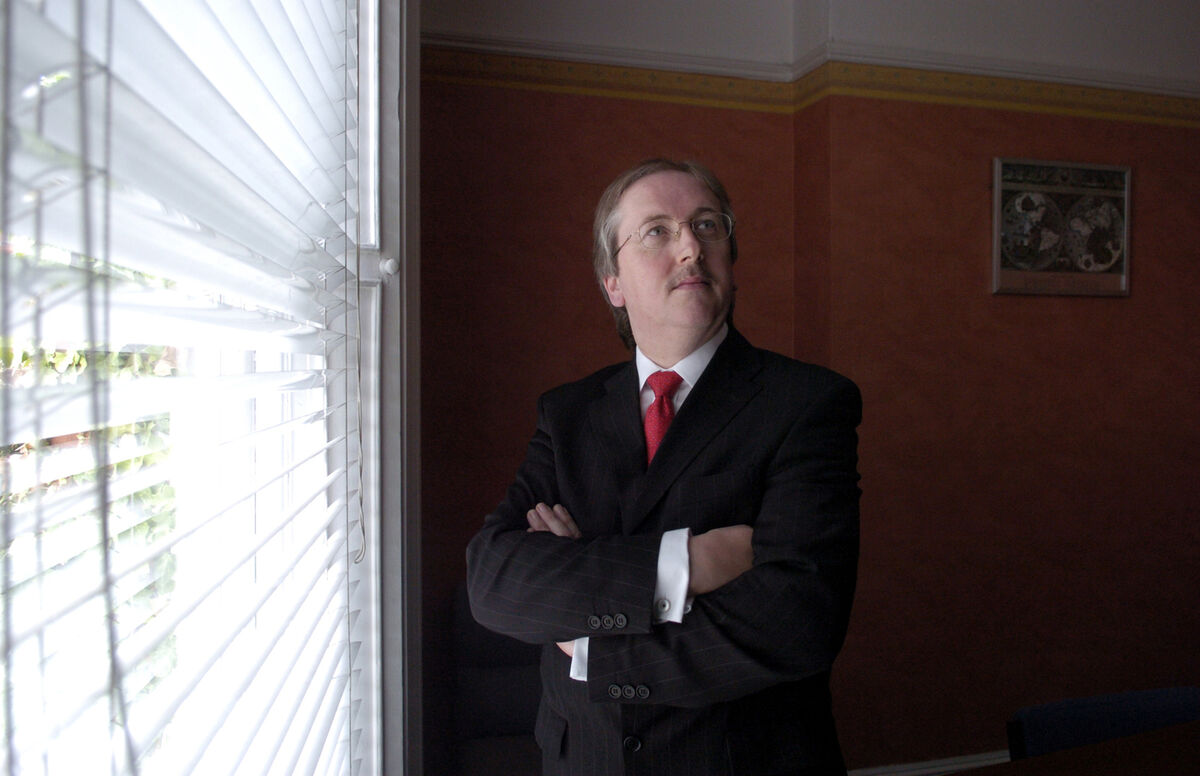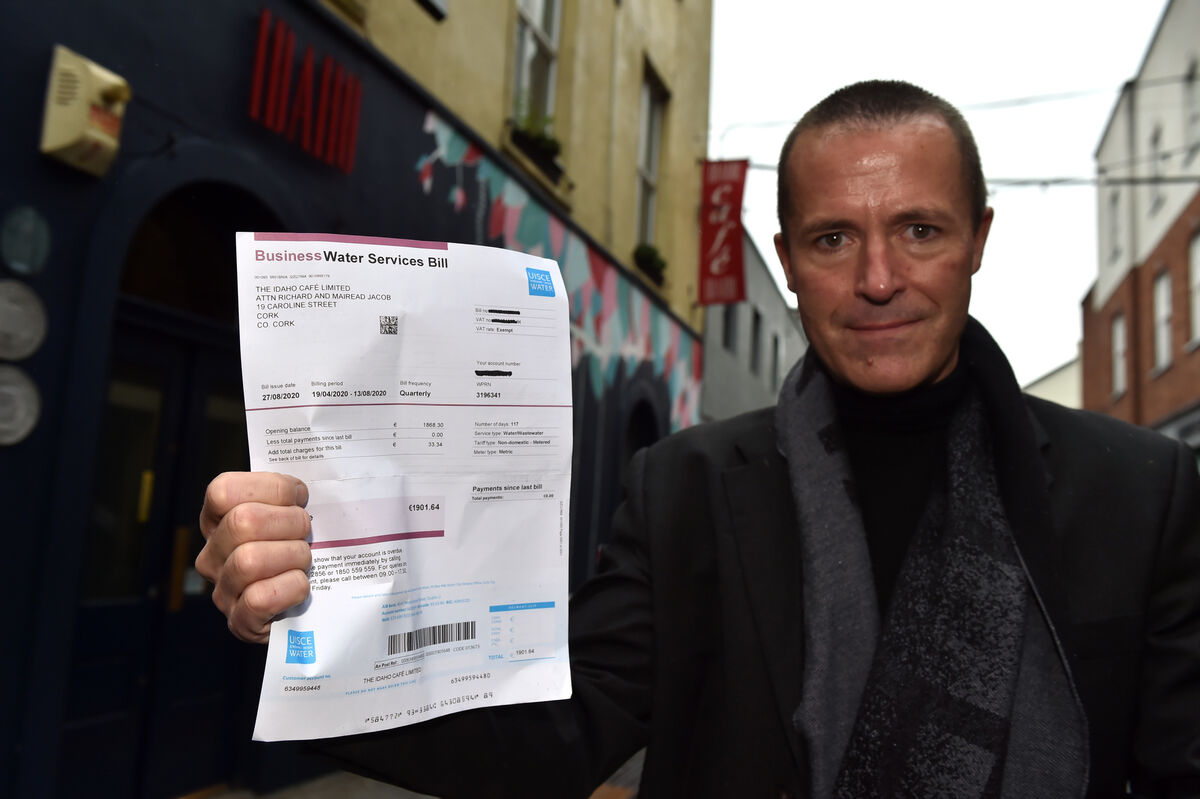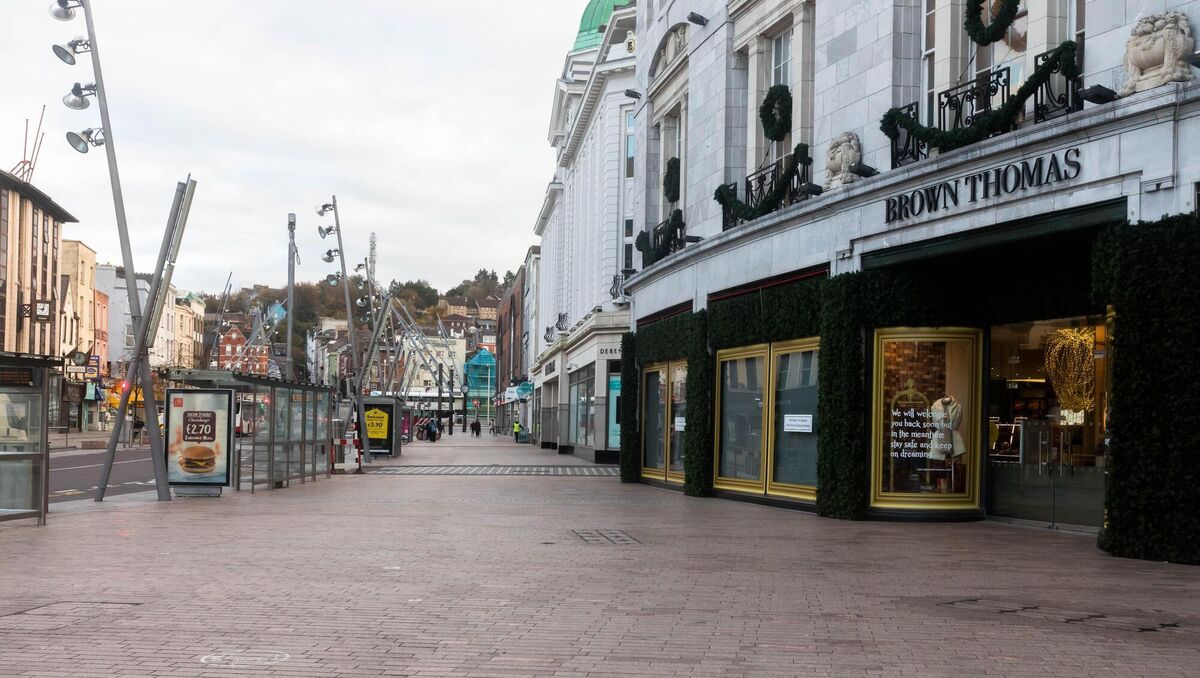Pádraig Hoare: Irish consumers short-changed when it comes to customer service

Dermot Jewell of the Consumers' Association of Ireland says what is missing is the requirement that the consumer be compensated for delays in resolution, remedy and refund.
When it comes to customer service, more and more Irish consumers are being short-changed.
Whether it's being left on hold on the phone for hours on end, the lack of follow-up, or quick fixes only for the problem to arise again, good customer care is getting harder to find.
The lack of service or fixing an issue is one thing, but the layers upon layers of action that customers need to take before their complaints are remedied is what causes the most anger and frustration.
Weary customers writing off hundreds of euro wrongly taken from accounts because they feel they are getting nowhere is another.
Hapless social media personnel employed by companies to take the brunt of frustration online without offering any solutions is a relatively new layer to the consumer nightmare jigsaw in recent years.
It has given a general air to customers that utility companies really view them with disdain.
The has heard from customers of the likes of Vodafone, Sky, Bord Gáis Energy, and Irish Water, who invariably said the same thing — it can be exhausting, painstaking, and detrimental to physical and mental health to seek recourse.
Lest the impression be given otherwise, there are positive outcomes for people, and many companies do prize themselves on good customer service.
However, the complaints are too many and visible to ignore, with little hope of redress in many cases.
Statistics from the Commission for Communications Regulation, or ComReg, show it recorded approximately 27,100 contacts, leading to 7,262 consumer queries being dealt with, in addition to managing over 2,297 consumer complaints in the third quarter of this year.
When it comes to resolving complaints, the median resolution time was 10 working days, and the average number of complaints per 100,000 subscribers was 103.
For mobile service providers, the median resolution time was 12 working days and the average number of complaints per 100,000 subscribers was nine.
ComReg said it has resolved 5,354 complaints in total, relating to all service providers, from January to the end of September.
Eir is the standout entity that keeps cropping up in the ComReg files. Since January 1, some 3,477 complaints have been resolved by ComReg’s consumer line on behalf of Eir’s customers, the regulator said.
It seems implausible, but Eir issues so dominate the customer complaint lines that other companies look like mild offenders in comparison.
In the third quarter, according to ComReg, it logged 1,062 complaints in relation to Eir, compared to 183 for Vodafone, 88 for Virgin Media, and 44 for Sky.
The regulator said: “ComReg is very concerned about Eir’s ongoing customer care problems and it has engaged extensively with the CEO of eir. ComReg has sought a remediation plan from Eir and has raised with Eir the level of public dissatisfaction and consumer detriment as a result of its customer care.
Eir has said that the pandemic had made managing customer service more difficult.
"Resolving care wait times is our number one priority. The average wait time for care in the last week was under 10 minutes, and while this is not where it should be, we are making steady progress and we wish to apologise for the delays some customers have experienced."
Consumer advice and advocacy website Bonkers.ie said the level of complaints in the telecommunications sector has always been high.
Some of this is understandable, as given the technology involved, there’s always the potential for something to go wrong, according to the organisation's Daragh Cassidy.
“However, some suppliers are clearly not at the races when it comes to customer service and serious questions have to be asked of ComReg as to whether or not it’s adequately performing its duties. And if ComReg feels it doesn’t have the power to bring the providers to heel, then the Government needs to act also.”
He said Bonkers.ie receives complaints from the public about broadband and TV providers in particular on an almost daily basis.
“You can’t help but feel that if these were banks treating their customers with such disdain, that the Central Bank would be all over it.
“According to ComReg, complaints about the main mobile and broadband service providers increased by a staggering 101% year-on-year in Q3, and almost 47% compared to the last quarter. Some of this increase can be attributed to more people working, studying, and living at home due to Covid, which was always going to have an impact, however, the rise in the number of complaints is still shocking.”
He pointed out that these are only official complaints submitted into ComReg.
“You can be sure that there are many tens of thousands more customers simply putting up with bad service.
“When it comes to choosing a new provider, whether it be your energy supplier, your mobile provider, your bank or your insurance company, it shouldn’t always be about price.
Customer service is an important factor for people to take into consideration too and I’d recommend customers try to investigate and review the customer service record of any company before signing up, which in this case, is ComReg’s quarterly .”

Many firms talk a good game, but do not back up the talk with resources needed to appease disgruntled consumers, according to Dermott Jewell, policy and council adviser of the independent non-profit Consumers’ Association of Ireland.
Firms waxing lyrical about their commitment to customer service are plenty, but the message quickly wears thin in many cases, he said.
“Customer service comes with highly impressive messages in the run-up to the closure of the consumer contract for a sale of goods or services. All will contain comforting assurances ranging across the spectrum of offering the very best of high-quality support, with only the customer in mind, in terms of speedy accessibility, to concerned, highly trained agents who will deal with you personally and in confidence on any matter.
“Far too often those assurances have proven to be short on truth and, in terms of value to the consumer, worthless. This is not new, it is a factor of the consumers' life and predominantly is why we have and need rights and legislative provisions to support the consumer when things go wrong and they are denied their entitlement,” he said.
Consumers rely therefore on effective regulation and specifically it’s enforcement, according to Mr Jewell.
“The problem is that the two do not measure up as well as many consumers would wish or expect. Many large providers such as telecoms and airlines do not invest sufficient funds in customer service and so we find ourselves, as we do now, denied refunds for travel paid for in advance, unable to contact customer service and seeking enforcement action that is not forthcoming or, certainly not feeding back the detail of progress that we need- from either side.”
A problem for enforcement is the delay in response to many regulators, Mr Jewell said.
“ComReg, for example, have taken on Eir on quite a number of occasions, received promises of action and investment in customer service, and then found that this was not as promised for varying reasons. The Central Bank process is effective in the long term as is that of the Financial Services and Pensions Ombudsman, but the reality is that the route to resolution is that of fair procedure and that takes time.”
What is missing in most of the processes, according to Mr Jewell, is the requirement that the consumer be compensated for delays in resolution, remedy and refund.
“The time invested by the average consumer in seeking their basic entitlements is significant and it is not only undervalued but rather it is ignored — entirely.
Collective redress may tackle the problems and break up the intransigence employed by many firms, he said.
According to the EU, collective redress is when consumers who have suffered the same loss or harm caused by the same trader come together and seek redress in court as one.
Also known as a group action or class action, it enables a group of consumers who have had their rights violated to be represented by a consumer organisation which seeks fair compensation for them in situations where consumers would otherwise be left empty-handed.
The bloc has said it will strengthen consumers by granting broader opportunities for the collective defence of their rights.
In June, a directive that requires states to protect consumers’ collective interests against infringements of EU law was drafted. It is currently moving through the various EU layers of bureaucracy.
Mr Jewell said: “It is long called for but has long been ignored that we provide the means in Ireland for collective redress. The means through which the power and resources are given to the Consumers’ Association of Ireland to take a case, independently, for widespread consumer loss caused by a single provider.
“The European Commission has paved the way for this important change. All we need now is action at the national level to make it happen and, finally, provide some hope for a means to ensure consumer get, precisely, what it says on the tin.”

When the Irish Examiner asked readers to share their stories of customer service failures, it became clear that the much-maligned Eir was not the only culprit.
Eir is currently in a league of its own in 2020, with Comreg complaints far and above any other utility company.
However, testimonies from Irish Examiner readers outlined obfuscation, delays, being placed on hold for hours, not returning calls or emails despite assurances, and other general annoyances.
The likes of Vodafone, Bord Gáis Energy, Sky and Irish Water were named.
Richard and Máiréad Jacob are the proprietors of one of Cork’s best-known establishments, the Idaho cafe on Caroline St.
Mr Jacob said Irish Water had threatened his business with legal action for not paying for the water wasted in a leak in a neighbouring property.
Despite insisting the leak was not from his property, providing evidence repeatedly, he had an exhaustive battle with the company over two years before it backed down.
A two-year tussle was resolved within hours when Mr Jacob highlighted the issue on social media to the Irish Examiner.
He said: “It is just exhausting, you feel like you are banging your head against a brick wall most of the time.
“You get to the stage where you wonder if it is worth the hassle. It has been so frustrating, you wonder should you just leave it go.
“Ironically, the Covid-19 pandemic, which has devastated businesses like ours, gave us the opportunity to pursue this. Otherwise, it wouldn’t have been worth the time and energy needed.
“Irish Water has now resolved the matter, so we were lucky.
"I think of elderly people, or people with families with additional needs, who simply don’t have the resources to fight.
“You see it with banking, you see it with utility companies, you see it with airlines. There is a customer service culture in this country that is simply not good enough,” he said.
An elderly couple on Cork’s northside who were sold a so-called “voice over internet protocol” package (VOIP), or basically an internet-run phone call service, by Vodafone soon found it was not suitable for their needs, was far more expensive than they had realised, and that they hadn’t grasped what they were being sold.

They were told they could cancel at any time, while in the meantime, an engineer disconnected their existing upstairs landline - vital for the elderly woman, as she had a serious medical condition that could result in an emergency situation at any time.
Between switching from Eir to Vodafone, and trying to rescind the contract, the elderly couple’s son said he was pushed from pillar to post by both companies, with complaints unanswered, promised callbacks and emails not acted upon, and untold upset.
The couple’s son told the Irish Examiner: “This is head and shoulders above the poor customer service experience I have ever witnessed with bank lenders.
“There is a significant power imbalance which needs to be addressed by Government. This case originated with mis-selling and not fit for purpose use of VOIP.
“I am aware that there is an aim to remove all landlines in the coming years and to use VOIP technology but this may not be best for a lot of our population including elderly.
This was a true example of 'get the sale'. Forget about after-sales, it was all about the initial sale, that all important stat.”
Sky, Bórd Gáis Energy and other firms also formed part of customer complaints that the Irish Examiner were informed of, all of which appeared to be legitimate grievances.
The Irish Examiner asked these companies how seriously they took customer service, and whether they felt they needed to improve.
Irish Water said: “Irish Water has seen a reduction in customer-driven contacts to the Commission for Regulation of Utilities in 2019 and accounts for only 6% of all customer contacts across Energy and Water.
“There has been an increase in overall complex cases handled by the CRU with Irish Water accounting for only 11% of all complaints that are escalated to the CRU across Water and Energy.
“Our complaint code of practice outlines our commitment to customers and we deliver a simple complaints process, that’s efficient, empathic and consistently reviewed. We value feedback from our customers and are keen to hear suggestions about how we can improve our service and we regularly carry out surveys to measure customer satisfaction with a view to continually improving our service.”
Sky Ireland said: “Brilliant customer service is of the utmost importance to Sky. We are constantly looking at ways we can improve our processes, reviewing customer journeys and implementing improvements where necessary.
“This is an area in which we constantly strive for excellence. We are very proud that we are the service provider with the fewest number of customer complaints as per Comreg’s most recent report.”
Bórd Gáis Energy said: “Bord Gáis Energy is committed to putting the customer first and offering the highest levels of customer service. We continuously review customer feedback to drive process improvements, and consistently look to reduce handling times of complaints.
“Each year we continue to decrease our overall volumes of complex complaints managed by the CRU. We also work closely with our partners, ESB Networks, Gas Networks Ireland and the CRU to reduce customer-impacting issues.
"We were delighted that in the 2020 CXi Ireland Customer Experience report, Bord Gáis Energy recorded one of the largest rises in rankings versus 2019, being awarded the title of ‘Best Brand in Utilities Sector’. We moved from 125th to 51st place, up 74 places in a year that was impacted by Covid.”
Vodafone Ireland said: “The Covid-19 pandemic has brought challenges to our business, which has meant that we’ve had to pivot very quickly to a new way of working. In particular, our primary concern was to ensure the health and safety of our care teams, and in doing so, providing them with the ability to work from home. Our ambition at Vodafone is to ensure that we deliver a standard of excellence in our customer service, and unfortunately, we acknowledge there have been situations where we have let ourselves down.
“To deal with unprecedented levels of contact from our growing customer base - and customers growing dependency on our services for work and leisure - we are fully committed to addressing such situations and are investing significantly to enhance our customer service capability from both a people and technology perspective.
“In November, we employed 100 new customer service agents who are currently going through a rigorous training process.
"These new agents will be in place from the start of December. We will continue to empower our agents with the knowledge, skills and training they need, and to do right by our customers through each and every interaction they have with us.”
Honeyed words by all, all pointing to the positives in their records, but conspicuously failing to address woeful shortcoming. The scourge of poor customer service is not going away.





